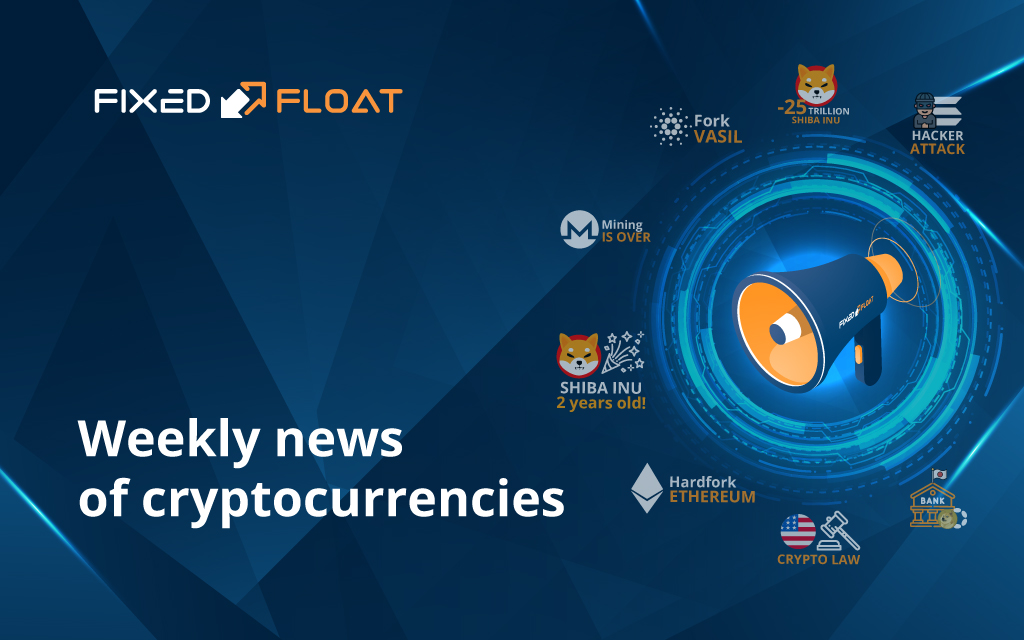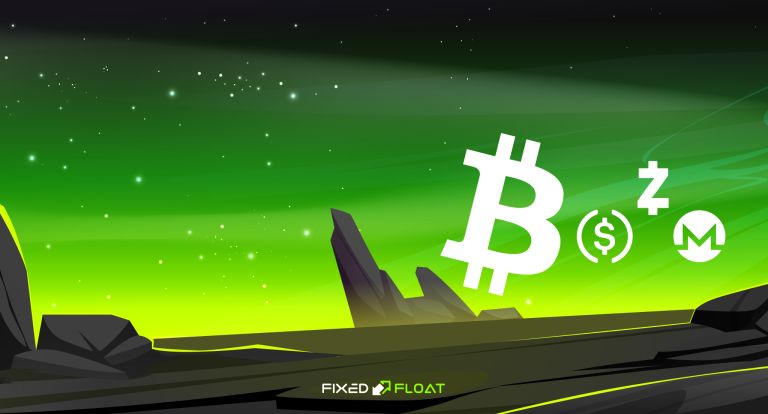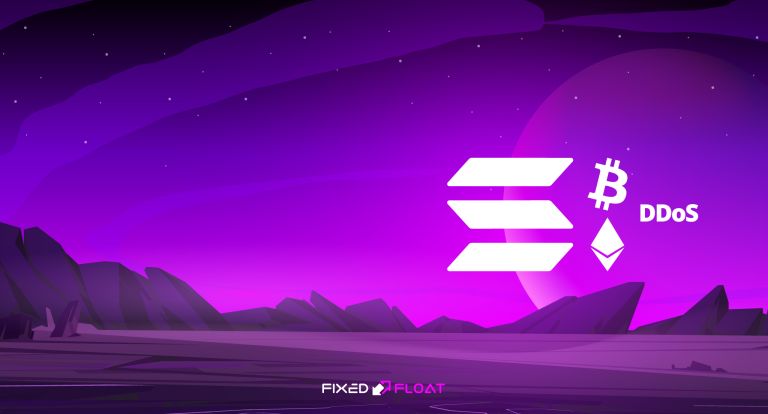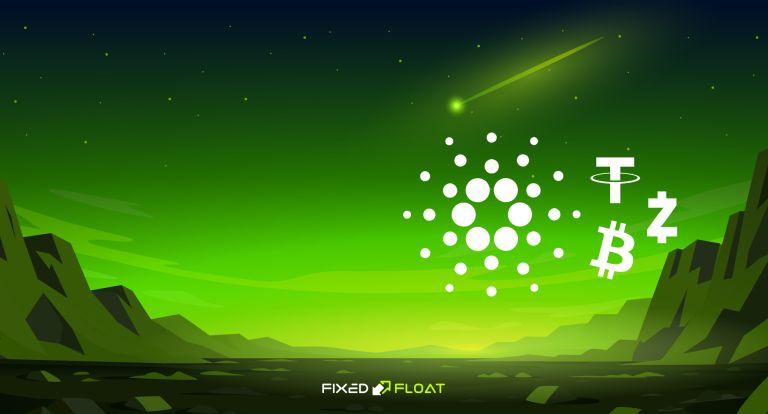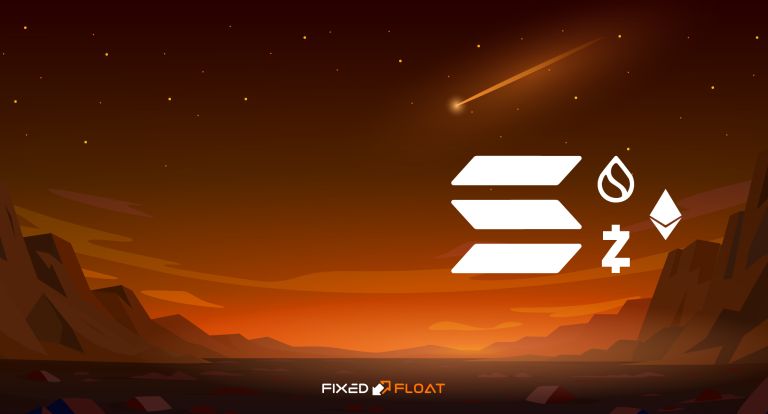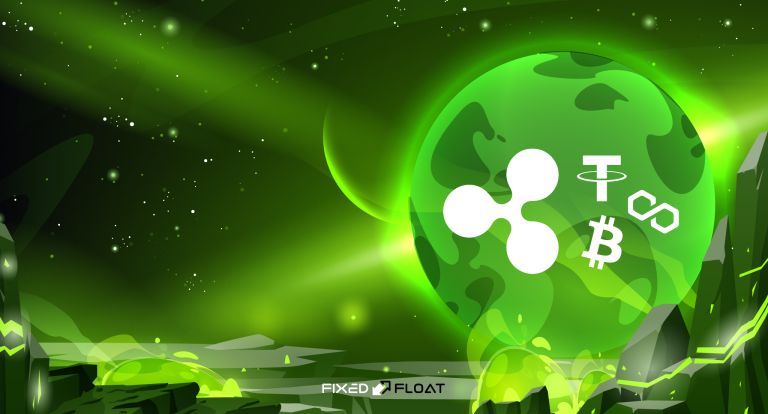July was a spectacular month for the crypto market. Albeit the month rounded off on a slow note as most coins consolidated after a mild retracement, crypto enthusiasts are hopeful that August will continue the streak of stellar performance that began in July.
Largest Monero mining pool to shut down next week
The largest mining pool on the monero network with a control of 48% of the network's hash rate is slated to shut down its operations on August 12. MINEXMR had been criticized for its large stake within the XMR network as users feel its overwhelming control was unhealthy for the sustained decentralization and security of the network.
In a news release by MINEXMR, the mining pool said "we recommend transitioning to the decentralized p2pool. There are no pool fees when using p2pool, and the decentralized pool helps to support the Monero Network." To support the seamless transition of miners to different pools, MINEXMR provided information on how to reconfigure mining devices and advised miners to reconfigure their devices before August 12.
Because Monero's users had complained of the over-centralization of the Monero network since 2018 due to MINEXMR’s control, it is, therefore, safe to say that the news of MINEXMR's shutdown might gladden the hearts of Monero users who fear that MINEXMR's 48% hash rate control made the network vulnerable to a 51% attack (an attack where overwhelming control falls in the hands of a single entity who then control the validation of transactions, thus, weakening the network's immutability).
Solana wallets were attacked by hackers
It was a night of terror on August 2 as Solana users all over the world found their wallets emptied of Solana-based tokens, Sol and the USDC stablecoin, in a coordinated global hack. The attackers snatched an estimated $4.46 million worth of assets (estimate may increase as more information comes to light).
Data from Sols can, the Solana blockchain explorer, identified four attackers' wallets as responsible for the attacks. It was reported that the attackers attacked over 25,200 wallets; however, official statements from Solana twitter put the number at 8000 unique wallet addresses.
As audit and blockchain forensic firms investigate the hack, the attack's dominant explanation is that it "does not appear to be a bug with Solana core code, but in software used by several software wallets popular among users of the network."
Ethereum founder Vitalik Buterin got rid of 25 trillion Shiba Inu
Vitalik's ETH address sold 25T Shiba Inu coins on Uniswap for $33k, Peck Shield stated. You would recall that But erin was gifted with many Shiba coins. Buterin went on to burn 90% of his stash and sold the 25 trillion remainder this week for $33k in a move that might send the memecoin's price spiraling down.
Crypto speculators argue that Buterin's move might be a clear statement suggesting the worthlessness of the coin. However, despite the dump, the value of the Shiba remains unshaken.
New US bill on cryptocurrency regulation
As crypto adoption expands, the US authorities seek to tighten their loose regulatory grip on cryptocurrencies. On Wednesday, August 3 2022, Chairwoman of the Senate Agricultural Committee John Nichols Boozman added another bill to the long list of submitted proposals to regulate cryptocurrencies. The proposed bill seeks to empower the Commodities Futures Trading Commission (CFTC) as the sole regulator of digital commodities, including cryptocurrencies like the Ether and Bitcoin. The bill will increase the regulatory powers of the CFTC should the bill pass.
Similarly, Senator Cynthia Lummis, a Republican from Wyoming and Senator Kirsten Gillbrand, a Democrat from New York, demanded regulation and tax considerations for digital assets through another bill. The bill also referenced the roles of the CFTC and the US Security and Exchange Commission. In yet another proposal, The US House Financial Service Committee also proposed a bill to increase the powers of the US Federal Reserve in the crypto market.
The US seems to be at the forefront of tightening crypto transaction and usage regulations. While the authorities see this as a welcome development aimed at protecting consumers, others claim that current repressive bullying masqueraded as regulatory measures might discourage development in the fin-tech industry.
Shiba Inu celebrates its second anniversary with the release of Shiba Eternity
Despite the cloud of gloom cast by the scary Shiba dump by Buterin, Shiba is in an upbeat, celebratory mood. The Shiba army celebrated the second anniversary of the Dog-themed memecoin this week. Led by Shytoshi Kusama, the anniversary climaxed with the announcement of Shiba Inu's Card game titled "Shiba Eternity."
The game, which Play Studios developed, is being tested and scheduled for rollout shortly. Although the official release date remains unknown, the Shiba army is no less enthused by the news. Shiba Eternity will be accessible via Google Play and Play Store, Kusama stated.
Shiba also added another feather to its innovative cap and moved closer to the zenith of the cryptocurrency big guns’ list as it announced its SB Visa Card. The card will burn Shiba tokens each time it is used online and in physical shops. The card will allow for flexibility and ease and expand the use of cryptocurrencies in everyday financial purchases.
The delay in the fork of Vasil reduces the growing enthusiasm for the future of ADA
The enthusiastic expectancy of the Cardano community was deflated as the highly anticipated Vasil Fork gets delayed again. In a YouTube video released 5 days ago by Kevin Hammond, the technical manager at Input Output Hong Kong (IOHK), Hammond stated that the development team could finalize the upgrade in the coming weeks despite the current news of the delay.
Hammond stated that the postponement allowed for all necessary checks before the Vasil Fork went live. Charles Hoskinson, Cardano's founder, also chipped in via his YouTube channel on August 1. Hoskinson stated that the delay would allow the development team to fix bugs and other things that could go wrong. Hoskinson further stated that he expected no further delays to the upgrade. However, despite the news of the delay, ADA is not doing badly. The currency is currently trading at 0.501 after a retracement from the $0.556 level.
Japanese Bank accepts Dogecoin and Polkadot
Good news for Dogecoin and Polkadot as both coins get listed by one of the most established crypto exchanges in the Asian region. In a news release on August 3 by Bitbank, the Asian crypto exchange giant stated it would now accept Dogecoin and Polkadot for lending and interests.
The Tokyo-based cryptocurrency would celebrate the addition of Dogecoin and Polkadot with no commission trading on the Dogecoin against the Japanese Yen. Bitbank will only offer this no-charge trading discount to make orders that provide liquidity and take orders which remove liquidity.
Crypto enthusiasts within the Asian region believe this breakthrough was made possible after Japan recently loosened regulations around cryptocurrencies and released a Green List containing cryptocurrencies requiring minimal legal checks by the Japan Virtual and Crypto Asset Exchange Association (JVCEA). The move has made Japan more liberal with cryptocurrencies, resulting in the first-ever Zero fee Dogecoin trading. The promotion will see Bitbank traders trade the Doge without the usual -0.02% to +0.12% charges.
An Influential miner wants to create an Ethereum blockchain hardfork
The Ethereum community, as the long-awaited event approaches, the transition to the Proof of Stake consensus algorithm, risks facing a possible hard fork.
This was stated by the influential Chinese manner Chandler Guo. He wants to keep the current Ethereum chain called MATH POW so that miners can continue their work.
The transition of Ethereum from the Proof of Work consensus algorithm to Proof of Stake will deprive miners of work. In this regard, many miners are dissatisfied with the upcoming update. Ethereum developers, anticipating such a reaction, took actions to protect the network, including a complexity bomb. In response, miners can simply clone the Ethereum network by creating their own, resulting in two alternative chains.
